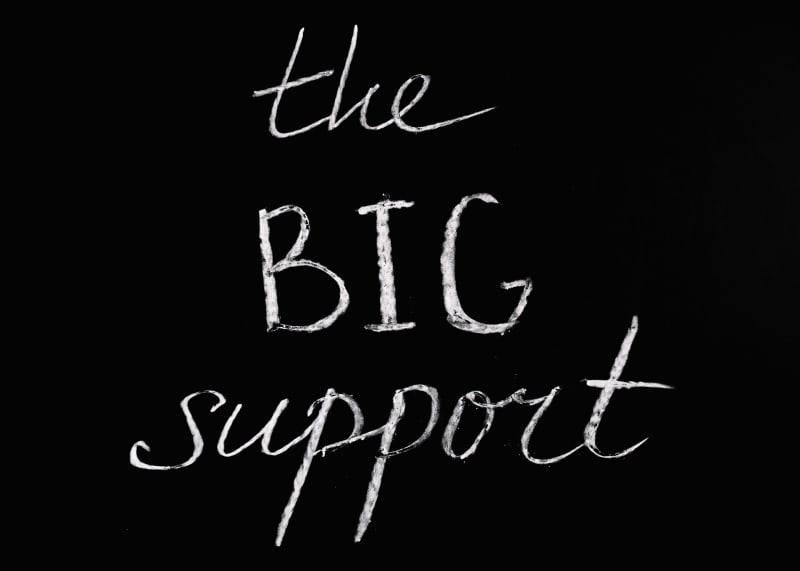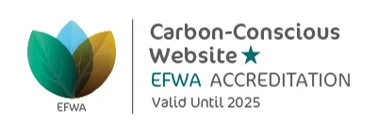Summary
Here are the 11 elements (+ bonus!) that every web agency should offer:
- Knowledgeable and up-to-date
- Experienced
- Have a process
- Have a legal agreement
- Demonstrate quality
- Provide realistic estimates of cost & time
- Ask questions
- Work in partnership with you
- Responsive to you
- Deliver
- Offer ongoing support and maintenance for site after it is live
- Bonus - Offer low-carbon, sustainable websites
Intro
I’ve been running a web agency for over 10 years now and, in this article, I’m going to summarise the 11 features that, in my opinion, every web agency should offer.
These items are not in any particular order and I believe that they are all important to maximise the possibility of a smooth web project leading to an effective outcome and a good ROI for the client.
1. Knowledgeable and up-to-date

Any web agency worth their salt, needs to have an in-depth understanding of the following items:
- design, including, of course, responsive web design and mobile design
- Search engine optimisation (SEO)
- Conversion (i.e. turning visitors into customers/clients)
- Web security - protecting your website from malicious activity
- Performance - designing and building websites that are fast
- Other technical items such as domain registration and migration, hosting, email set up.
However, it would be unreasonable to expect an agency to know everything about everything!
2. Experienced
You should expect a good web agency to have designed and developed a range of different sites across different industries. They should have created:
- brochure sites
- ecommerce sites
- B2B sites
- B2C sites
If the agency are offering SEO services, again they should have worked on a number of different sites. Ask them.
3. Have a process
They should have a process for designing, developing and implementing a website which they should be able to describe to you and share with you. This helps everyone involved in the project know where they are and what comes next. It helps organisation and planning.

The process must have some flexibility built in to allow it to adapt to each particular project but that should be done when there is an understanding of the scale and scope of the project.
The project process/plan should never be made up as you go along! Ask about their process.
4. Have a legal agreement
A professional web agency should insist that you both sign a contract for the services offered that specifies the responsibilities of each party, what is to be delivered and the costs involved.
The contract should be clear and make no attempt whatever to try to get you to sign something you might later regret. It should not try to tie you in to the services of the web agency and it must include a process for dealing with changes during the project. This should allow the client to request alterations to the original scope and indicate how costs and timescales will be handled due to changes that are requested.
5. Demonstrate quality
Clearly, a decent web agency should have a focus on the quality and reliability of the websites they deliver. In my view, it is important to test a website before it goes live. It should be tested on many different devices - Android phones and tablets, Apple phones and tablets, Windows and Apple desktop and laptop devices. Also, tested on the newest and several older versions of the operating systems on each device and on different versions of different browsers on each (Chrome, Firefox, Edge, Safari etc).
Testing should also include checking page load speed and taking any necessary action to improve that as far as possible.
Quality and accuracy is also important with other types of project - SEO, security, website speed improvements etc.
6. Provide realistic estimates of cost & time
You should expect a web agency to provide sensible estimates of cost and timescales. Estimates that are suspiciously low suggest that the agency hasn’t understood the project or they want to win the work with low estimates and may well find ways to change the client more later.
7. Ask questions

At the outset of any web project (website, keyword research etc), you should expect a lot of questions so that the agency can understand
- your business
- your current and future plans
- your brand
- your audience/customers/clients etc.
- your competitors
If an agency is going to do a good job for you, these are important factors that will contribute significantly to the success of the final product.
8. Work in partnership with you
A web agency should act as a partner, not simply as a vendor.
To my mind this need mutual respect and honesty and requires the client to play an active role in the project. The agency should request your participation, listen to your ideas, provide ideas of their own and actively seek your feedback throughout the project.
9. Responsive to you
A professional web agency should respond to clients quickly. I’m not suggesting that client’s questions are answered instantly, but rather that expectations are set as to when questions will be answered etc.
An agency should provide several channels of communication and agree these with the client. This is likely to include email and phone but should also include video calls, Slack channels or other shared cloud services.
Agencies should always aim to be clear and unambiguous and avoid jargon.
10. Deliver
It probably goes without saying that web agencies must deliver what they say they would when they said they would. If the agency becomes aware that they cannot meet a deadline, then they should communicate this to the client as soon as possible. Similarly, if a client can’t meet a deadline, they should communicate this as soon as they can.
11. Offer ongoing support and maintenance for site after it is live
Once a website is live, that should not be the end of the relationship between web agency and client. The agency should offer ongoing care, maintenance and updates the site. They shouldn’t need to carry out content updates (unless the client requests this) as this ability should be provided for in the development project.

However, the agency are in the best position to provide software updates (e.g. WordPress plugins), carry out search engine monitoring, security monitoring and so on. Expect the agency to offer a contract for these services. This should not be a requirement of the agency but, if taken it should be renewable annually so the client can always go elsewhere if they are dissatisfied.
12. Offer low-carbon, sustainable websites
To be fair this is not an absolute requirement but it’s important nonetheless. As you may know, the internet as a whole uses vast quantities of electricity to power datacentres, networks etc., and most of this power comes from buring fossil fuels. So, although we don’t see it, every time we use the internet, we are creating carbon emissions.
AttractMore are committed to creating websites that are highly efficient. This means they use less power and so create less greenhouse gas emissions. A further benefit is that they are very fast websites which, in turn, provides a better user experience. You can find out more about how we create low-carbon websites on our sustainable web design page.
Conclusion
If I could summarise all this in 3 words, they would be:
- honesty
- integrity
- sustainability
Your website is your digital shop window and it plays an important role in business success so, it’s important to get it right. This, of course, implies that you should choose a top class web agency.
As you might expect, the agency I run, offers all the above.
Contact us about a new website, website maintenance, SEO, speeding up your site, web security etc.
